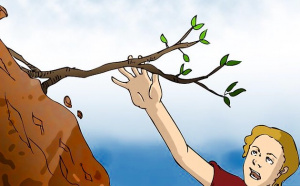Difference between revisions of "Language/Mandarin-chinese/Vocabulary/Expressions-to-survive-in-China"
m (Quick edit) |
|||
| (6 intermediate revisions by 3 users not shown) | |||
| Line 4: | Line 4: | ||
Are you going to China for a while? Here is a list of Chinese expressions to communicate with your local interlocutors and to "survive" there. | Are you going to China for a while? Here is a list of Chinese expressions to communicate with your local interlocutors and to "survive" there. | ||
With this lesson well in hand, you might want to consider these connected topics for further learning: [[Language/Mandarin-chinese/Vocabulary/%E7%88%B1-%C3%A0i|爱 ài]], [[Language/Mandarin-chinese/Vocabulary/Introducing-Each-Other-%28Business-vocabulary%29|Introducing Each Other (Business ...]], [[Language/Mandarin-chinese/Vocabulary/帮(幫)-bāng-help;-gang,-clique|帮(幫) bāng help; gang, clique]] & [[Language/Mandarin-chinese/Vocabulary/由-yóu-from|由 yóu from]]. | |||
==你好 Nǐ hǎo: hello== | |||
For the polite form, prefer nín hao. | |||
== | ==我不說中文/我不说中文 Wǒ bù shuō zhōngwén: I do not speak Chinese== | ||
At least not yet. A very useful expression to immediately remove any ambiguity. | |||
==我不明白 Wǒ bù míngbái: I do not understand== | |||
In addition to the previous sentence for example. | |||
== | ==歡迎/欢迎 Huānyíng: welcome== | ||
So that the guests feel at home. | |||
== | ==久仰久仰 Jiǔyǎng jiǔyǎng: honored to meet you== | ||
When you meet someone you have heard (good things) about. | When you meet someone you have heard (good things) about. | ||
==Zěnmeyàng: how are you?== | |||
==怎麼樣/怎么样 Zěnmeyàng: how are you?== | |||
A rather familiar catch-all phrase. To be avoided in formal circumstances. | A rather familiar catch-all phrase. To be avoided in formal circumstances. | ||
==Xièxie: thanks== | |||
==谢谢/謝謝 Xièxie: thanks== | |||
In testimony of your eternal gratitude. | In testimony of your eternal gratitude. | ||
==Duì bù qǐ: sorry== | |||
==對不起/对不起 Duì bù qǐ: sorry== | |||
A little politeness is the least of things. | A little politeness is the least of things. | ||
==Méi guānxi: it's nothing== | |||
==沒關係/没关系 Méi guānxi: it's nothing== | |||
Or also "no problem", "it does not matter" | Or also "no problem", "it does not matter" | ||
== | |||
==我餓/我饿 Wǒ è: I'm hungry== | |||
In such a country, it would be criminal to miss out on meals. Or not, it's according to the tastes ... | In such a country, it would be criminal to miss out on meals. Or not, it's according to the tastes ... | ||
==Duō shǎo qián: how much does it cost?== | |||
==多少錢/多少钱 Duō shǎo qián: how much does it cost?== | |||
To take the measure. | To take the measure. | ||
== Zhè tài guì: it's too expensive == | |||
==Mànmàn chi: Enjoy your meal== | ==這太貴/这太贵 Zhè tài guì: it's too expensive == | ||
==慢慢吃 Mànmàn chi: Enjoy your meal== | |||
Literally, it means "take your time while eating" or "eat slowly". | Literally, it means "take your time while eating" or "eat slowly". | ||
==Mǎi dān: the check please== | |||
==買單/买单 Mǎi dān: the check please== | |||
A must, unfortunately. | A must, unfortunately. | ||
==Zài jiàn: good bye== | |||
==再見/再见 Zài jiàn: good bye== | |||
==Other Lessons== | |||
* [[Language/Mandarin-chinese/Vocabulary/酒-jiŭ-liquor,-wine,-spirits|酒 jiŭ liquor, wine, spirits]] | |||
* [[Language/Mandarin-chinese/Vocabulary/掉-diào-fall,-drop;-lose|掉 diào fall, drop; lose]] | |||
* [[Language/Mandarin-chinese/Vocabulary/色-sè-color|色 sè color]] | |||
* [[Language/Mandarin-chinese/Vocabulary/新-xīn-new,-fresh|新 xīn new, fresh]] | |||
* [[Language/Mandarin-chinese/Vocabulary/还是-háishì|还是 háishì]] | |||
* [[Language/Mandarin-chinese/Vocabulary/改-găi-change;-correct|改 găi change; correct]] | |||
* [[Language/Mandarin-chinese/Vocabulary/数(數)-shù-number,-figure;-several|数(數) shù number, figure; several]] | |||
* [[Language/Mandarin-chinese/Vocabulary/占(佔)-zhàn-occupy|占(佔) zhàn occupy]] | |||
* [[Language/Mandarin-chinese/Vocabulary/费(費)-fèi-spend;-expense|费(費) fèi spend; expense]] | |||
* [[Language/Mandarin-chinese/Vocabulary/At-Home|At Home]] | |||
<span links></span> | |||
Latest revision as of 22:17, 26 March 2023
你好,
Are you going to China for a while? Here is a list of Chinese expressions to communicate with your local interlocutors and to "survive" there.
With this lesson well in hand, you might want to consider these connected topics for further learning: 爱 ài, Introducing Each Other (Business ..., 帮(幫) bāng help; gang, clique & 由 yóu from.
你好 Nǐ hǎo: hello[edit | edit source]
For the polite form, prefer nín hao.
我不說中文/我不说中文 Wǒ bù shuō zhōngwén: I do not speak Chinese[edit | edit source]
At least not yet. A very useful expression to immediately remove any ambiguity.
我不明白 Wǒ bù míngbái: I do not understand[edit | edit source]
In addition to the previous sentence for example.
歡迎/欢迎 Huānyíng: welcome[edit | edit source]
So that the guests feel at home.
久仰久仰 Jiǔyǎng jiǔyǎng: honored to meet you[edit | edit source]
When you meet someone you have heard (good things) about.
怎麼樣/怎么样 Zěnmeyàng: how are you?[edit | edit source]
A rather familiar catch-all phrase. To be avoided in formal circumstances.
谢谢/謝謝 Xièxie: thanks[edit | edit source]
In testimony of your eternal gratitude.
對不起/对不起 Duì bù qǐ: sorry[edit | edit source]
A little politeness is the least of things.
沒關係/没关系 Méi guānxi: it's nothing[edit | edit source]
Or also "no problem", "it does not matter"
我餓/我饿 Wǒ è: I'm hungry[edit | edit source]
In such a country, it would be criminal to miss out on meals. Or not, it's according to the tastes ...
多少錢/多少钱 Duō shǎo qián: how much does it cost?[edit | edit source]
To take the measure.
這太貴/这太贵 Zhè tài guì: it's too expensive[edit | edit source]
慢慢吃 Mànmàn chi: Enjoy your meal[edit | edit source]
Literally, it means "take your time while eating" or "eat slowly".
買單/买单 Mǎi dān: the check please[edit | edit source]
A must, unfortunately.
再見/再见 Zài jiàn: good bye[edit | edit source]
Other Lessons[edit | edit source]
- 酒 jiŭ liquor, wine, spirits
- 掉 diào fall, drop; lose
- 色 sè color
- 新 xīn new, fresh
- 还是 háishì
- 改 găi change; correct
- 数(數) shù number, figure; several
- 占(佔) zhàn occupy
- 费(費) fèi spend; expense
- At Home
